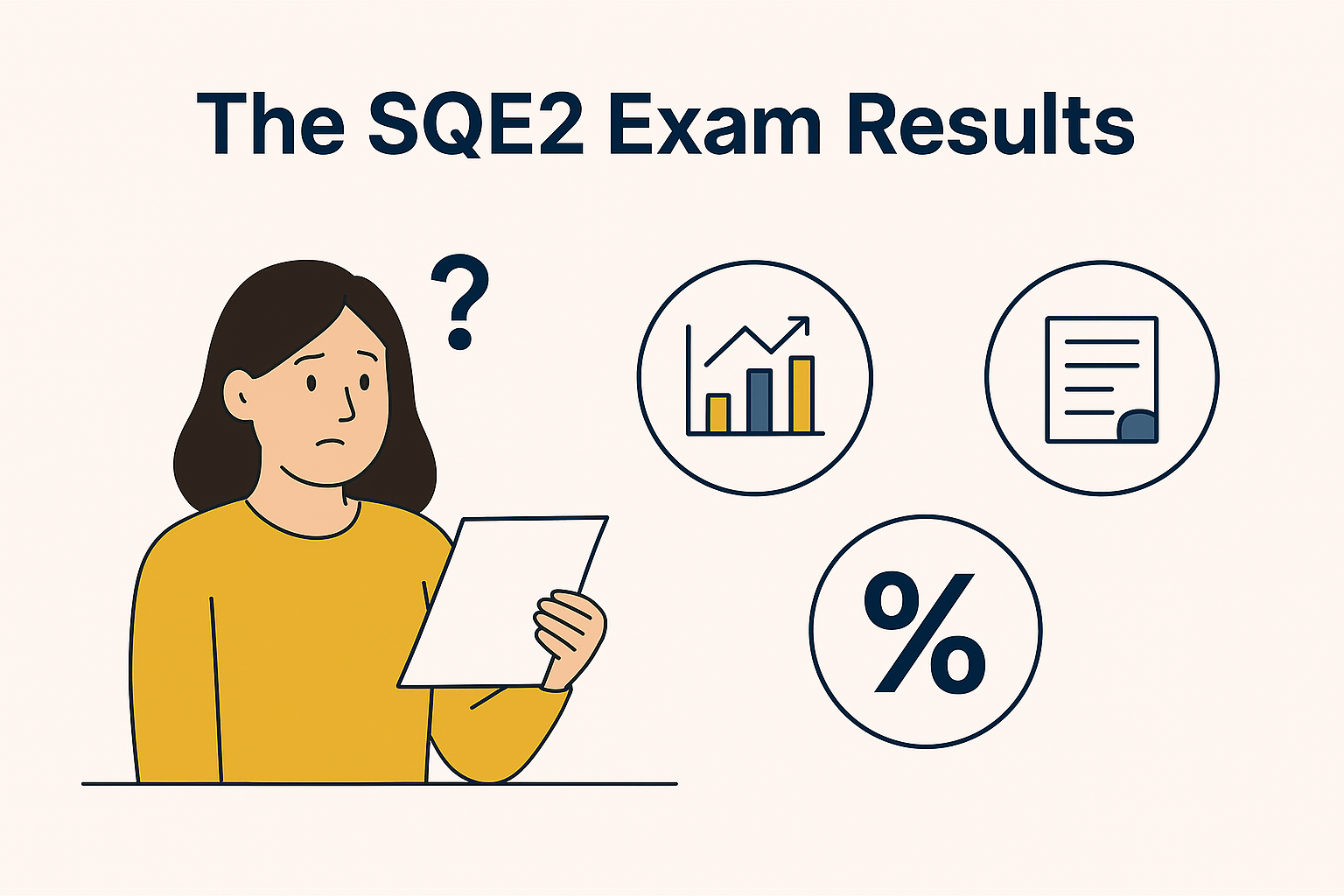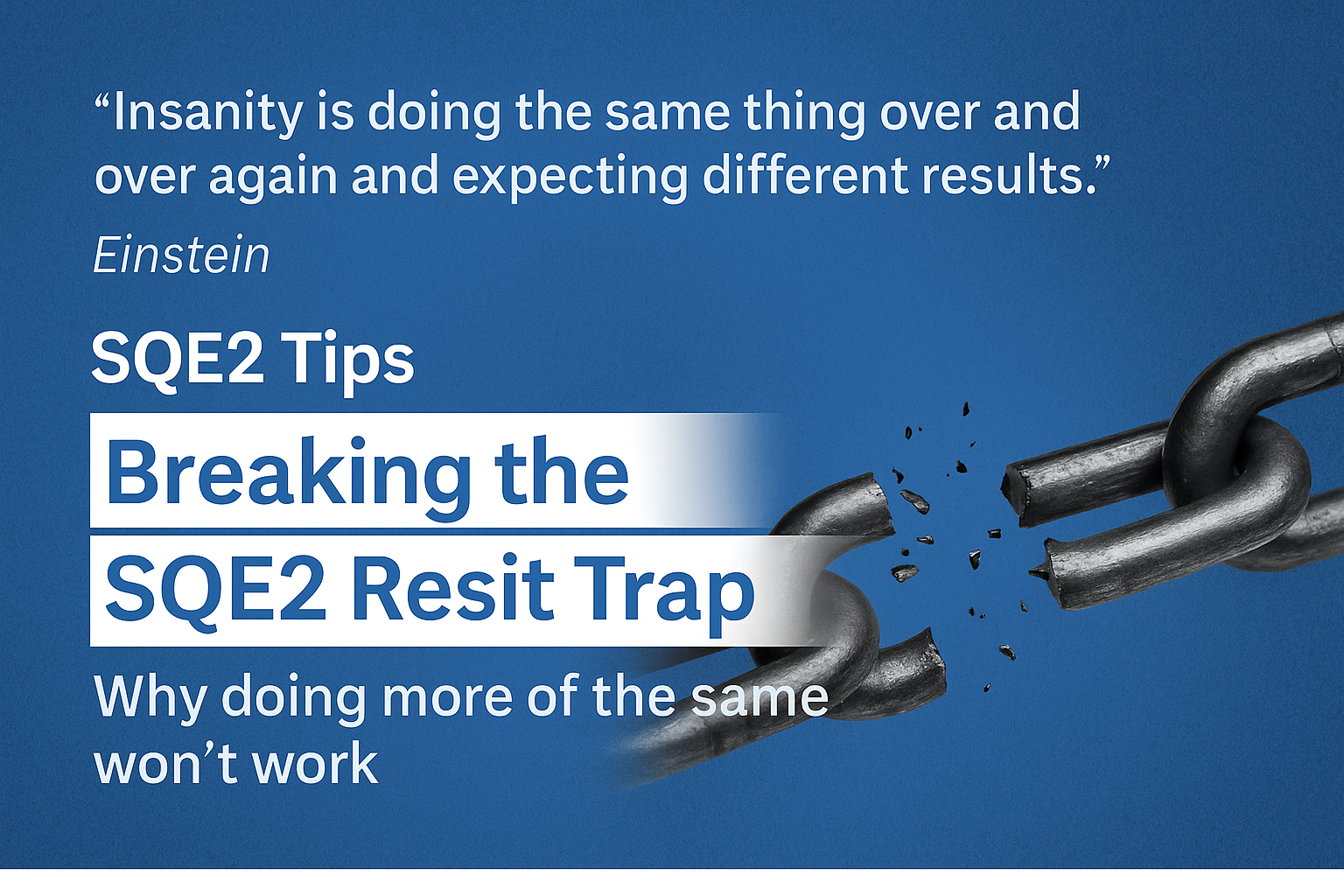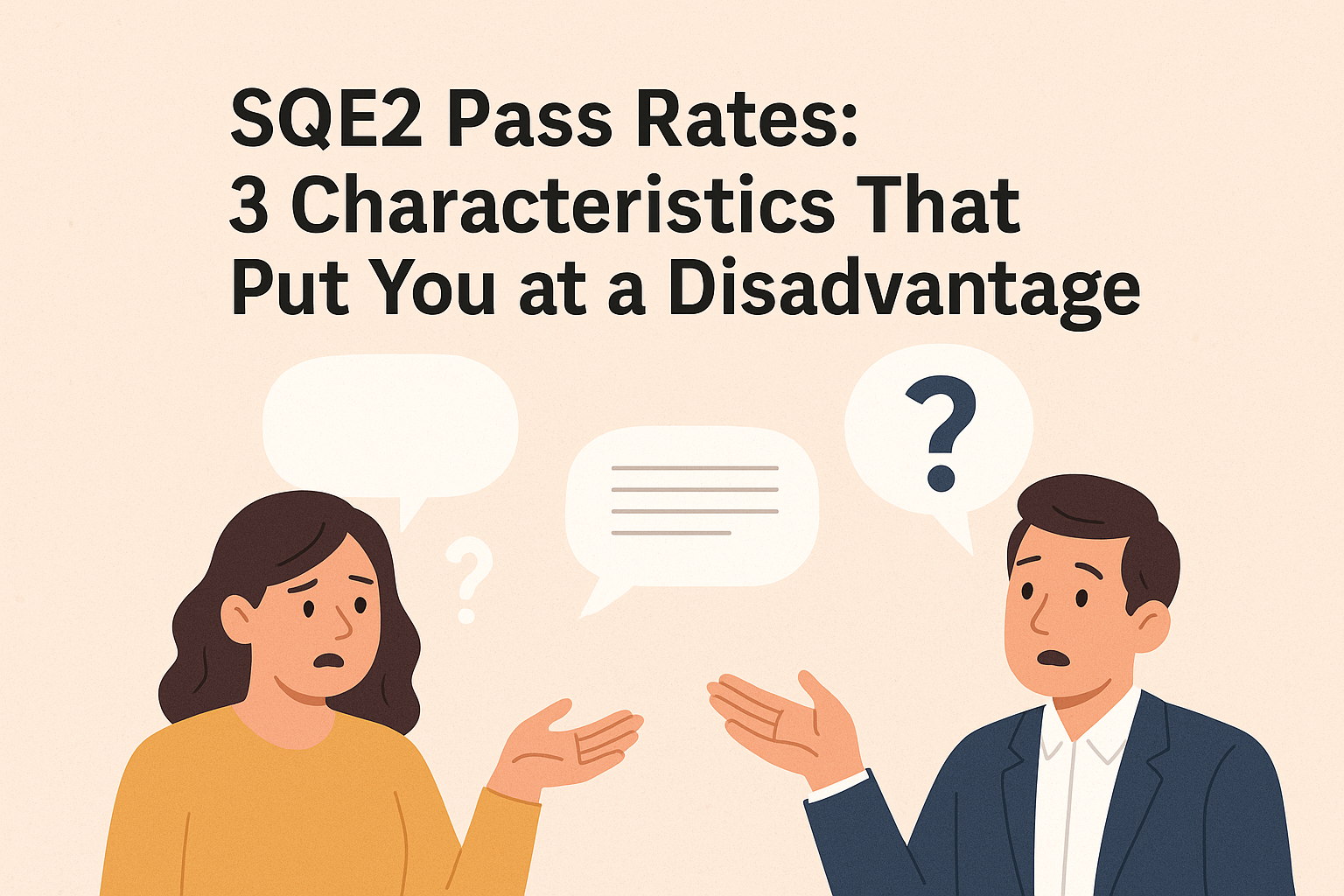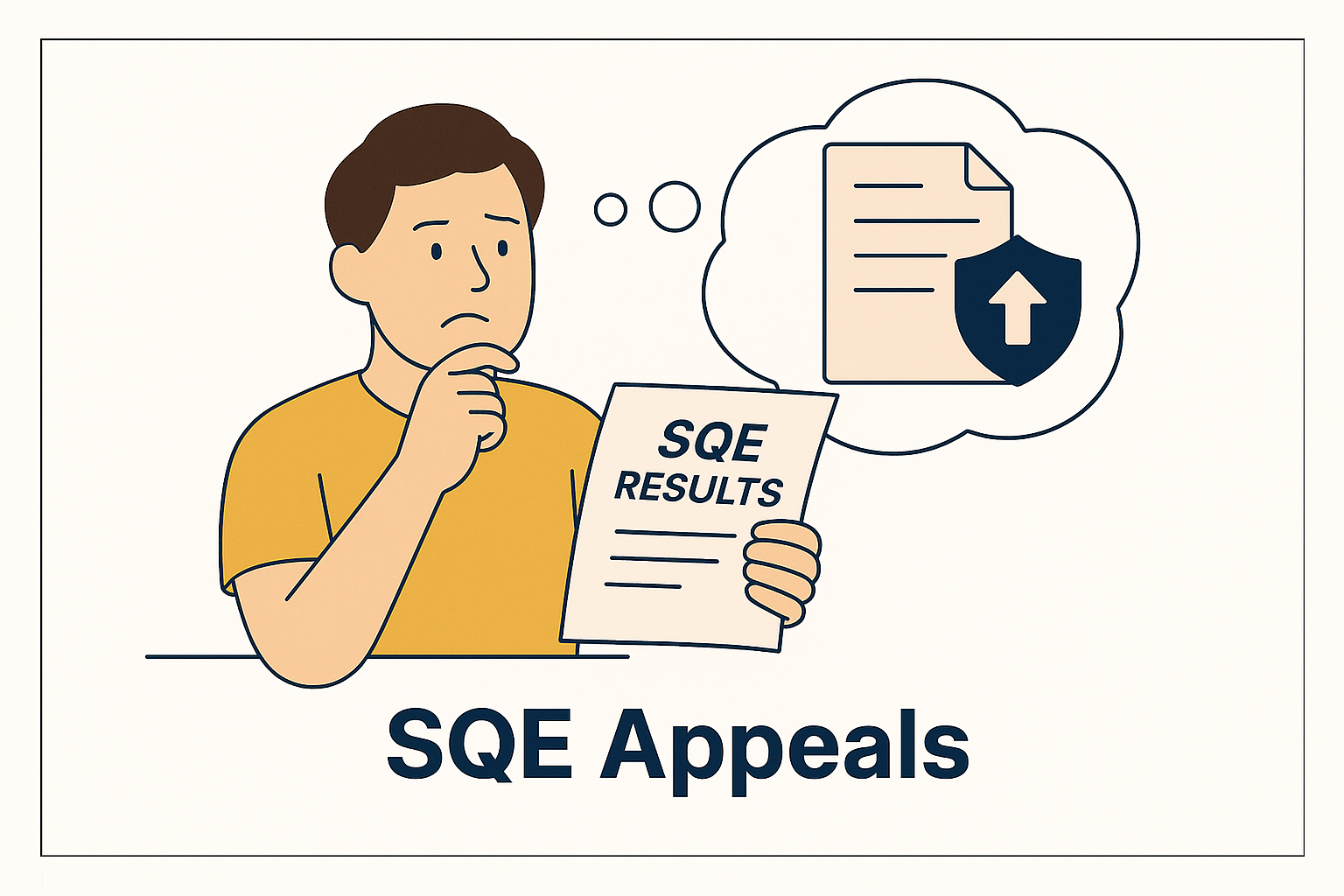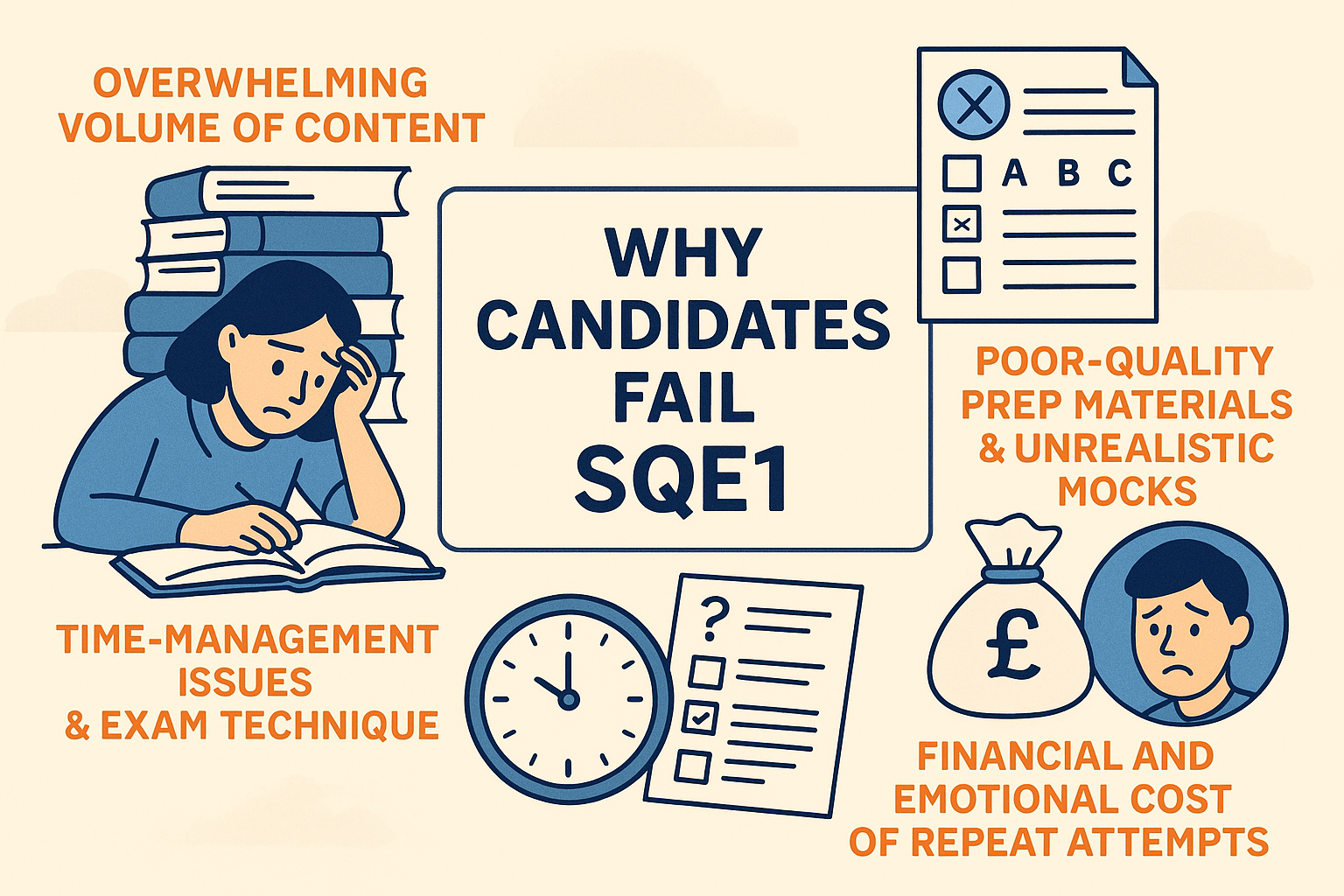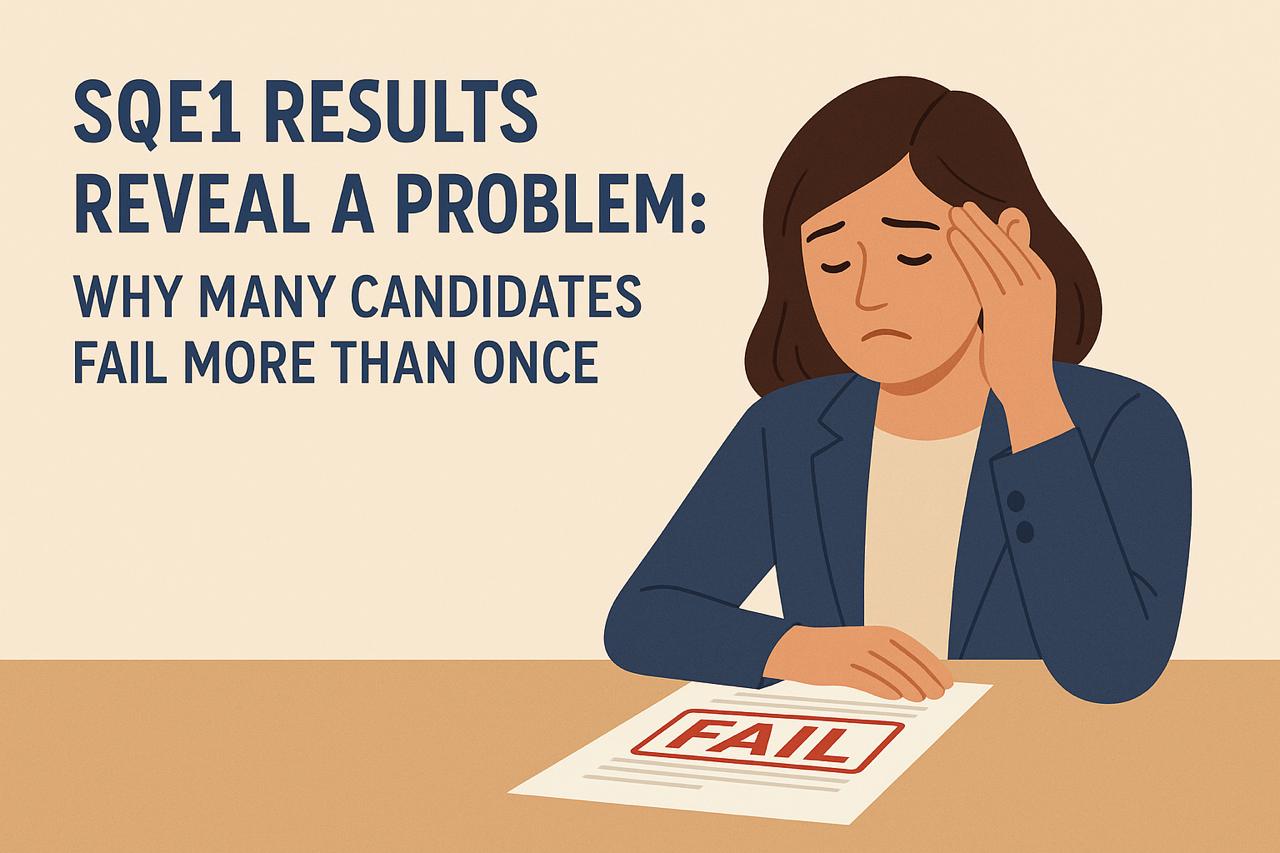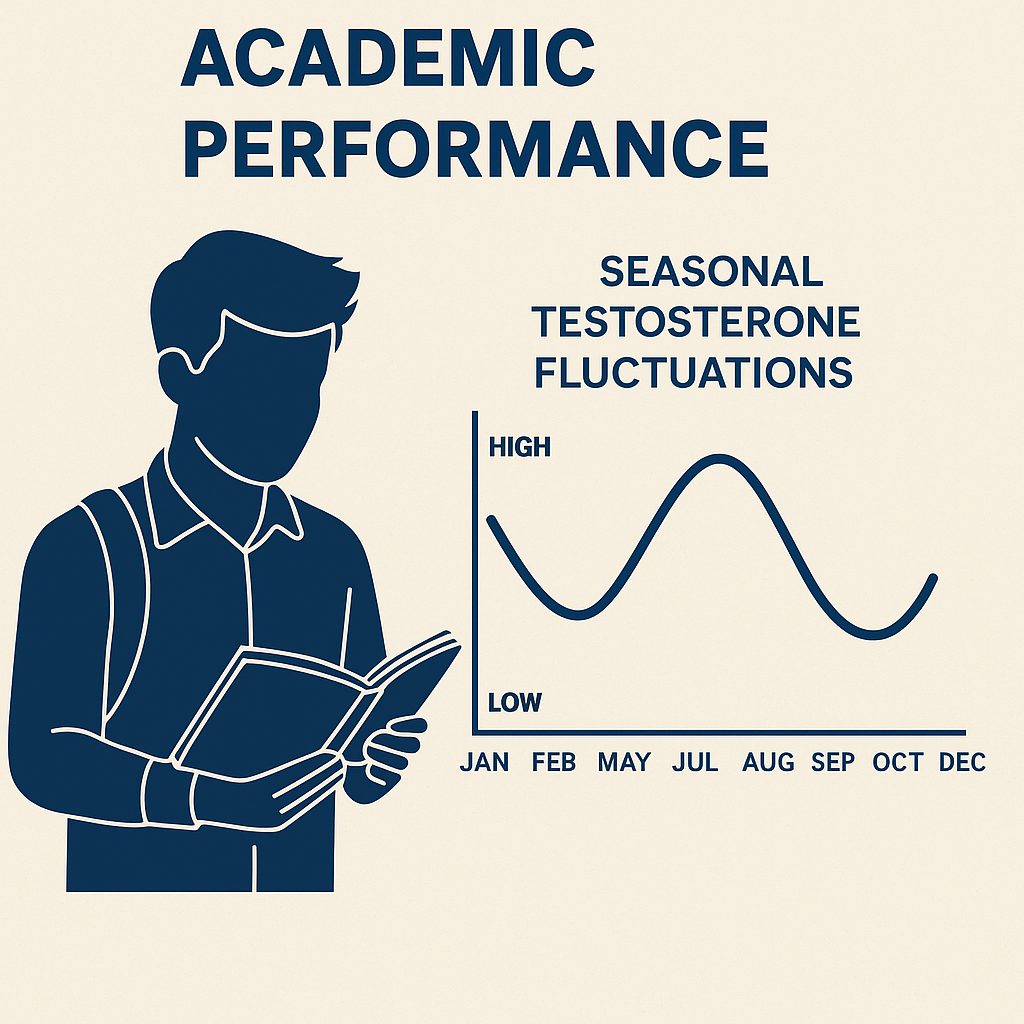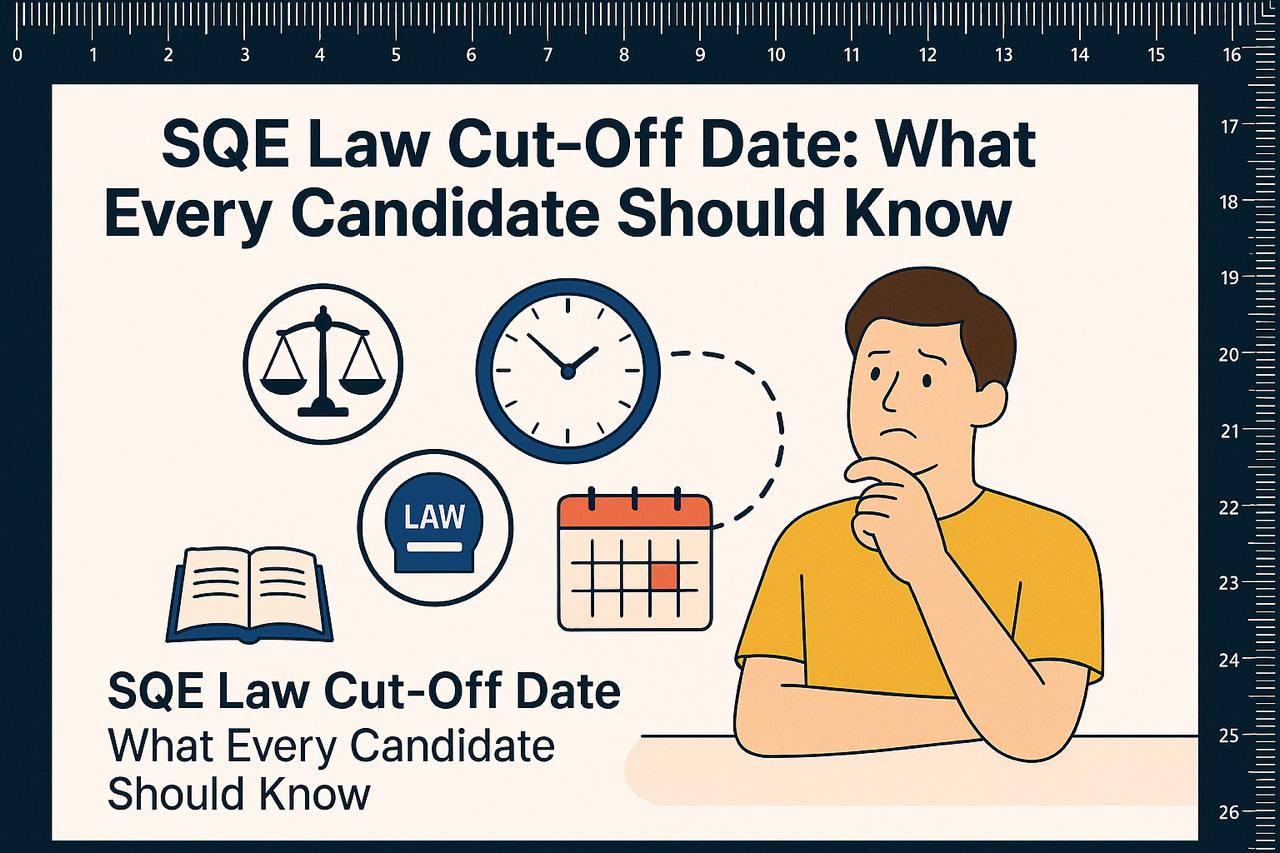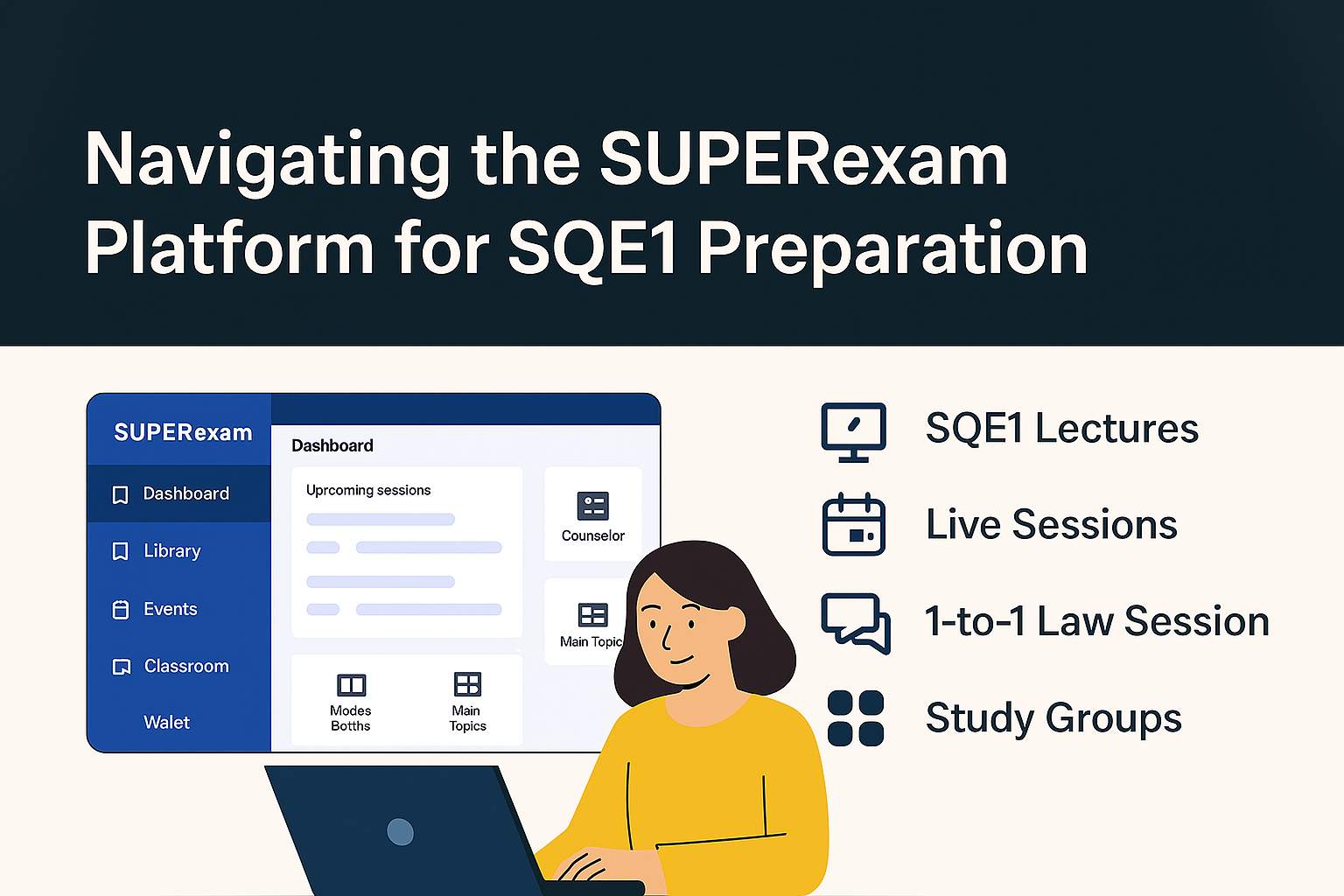Category: SQE methodology
This article serves not only those who have already attempted the SQE2 exam but also individuals in the preparation phase and those who are contemplating applying for SQE exemptions.
Many SQE2 resitters fall into the same pattern: they double down on revising legal theory – the area that feels safer and more familiar –...
Our specialised resources are here to guide you every step of the way: SQE1 Course for Foreign Candidates SQE2 Exemption Assistance Introduction: Language Requirements in...
Understanding SQE2 pass rates is crucial for every aspiring solicitor. Whether you’re just starting your preparation or have faced an unsuccessful attempt – analysing SQE2...
Challenging SQE results is regulated by the SQE Appeals Policy (Policy). This article is a detailed guidance for aspiring solicitors. It does not constitute legal advice. Note, we provide the opportunity for a free analysis of your SQE2 breakdown.
The latest SQE1 exam results highlight a troubling trend. A significant number of candidates fail the SQE exams multiple times. ☹️ Understanding the reasons behind...
Part of the “Struggling SQE Candidates” Series: Support for Foreign Lawyers, LPC Graduates & Underrepresented Groups This article is part of a wider series by...
There is a growing body of research suggesting that testosterone may influence cognitive performance and focus, which could be relevant for male students preparing for...
The Solicitors Qualifying Examination (SQE) has transformed the pathway to becoming a solicitor in England and Wales. With SQE1 testing candidates on Functioning Legal Knowledge (FLK) and SQE2 focusing...
Preparation Becoming a solicitor in England and Wales is a rigorous yet achievable journey, and passing the SQE1 exam is the essential first step. Whether...
